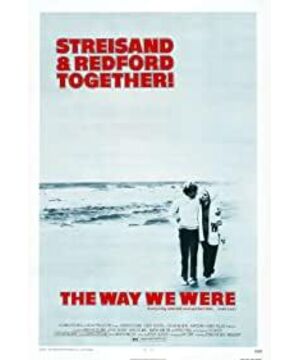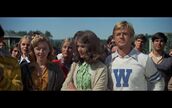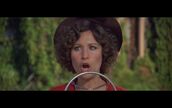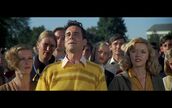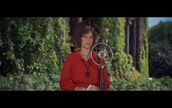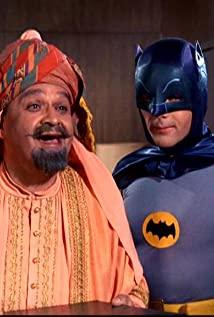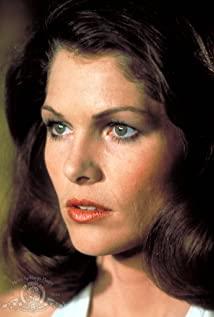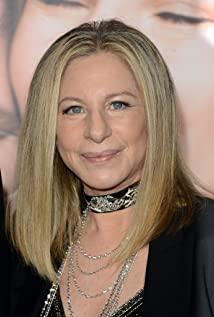The above idea comes from the movie "Old Times", where Barbra Streisand plays Katie, a crappy Jewish woman who, although not of the same gender as me, has a lot of similarities in the way she treats things. The first is identity. Katie and I were both born in ordinary families, and we are well aware of the hardships of life, especially the difficulties of the lower class; secondly, in public places, the seriousness that cannot be restrained is to jokers, especially dandy The children hate it; again, she is very possessive, but Katie has another characteristic that I don't have, and that is principle. guy.
When such a girl meets a middle-class boy, she should have passed by in a sloppy way, but when Harper, played by Robert Redford, appeared, Katie couldn't help but fall in love with this "class enemy". Maybe it's a bit blunt to use such a word, but before she fell in love with Harbour, she regarded the upper class as an enemy. This political bias stems from the screenwriter Arthur Laurents. During Cornell University, Arthur was as keen on communism as Katie. Many details of the film are portrayed in Arthur's year, such as public speeches in support of the Soviet Union and distribution of political leaflets. , work-study programs everywhere, etc. All of this happened in the 1920s, the American Jazz Age, when young people around them were silent in vain prosperity, poor-born, highly educated people would first smell the crisis, and Arthur and Katie would is one of them.
In contrast to the poor college student, Haber grew up in a carefree environment, whose image can be seen in some of Fitzgerald's novels. Of course, the film also made detailed descriptions of this group of people. For example, their lives are always without dance parties. In the sometimes intense and sometimes slow rhythm, they reap the wonderful spring nights again and again; their social interaction is mostly in a friend's In the living room, of course, it is a spacious upper-class living room, just like a salon in 19th century Paris, this group of people sits lazily on the soft sofa, sometimes holding their lovers, sometimes laughing at some gossip; His dream, let's say Harper's, he wants to become a famous screenwriter, even if he abandons the creative principle for this.
Katie fell in love with Harbour, and if you use the words of Le Jia, the guest of the current TV show If You Are the One, it is that cats fell in love with dogs. Or, it can be said in a more vivid way: you just don't know what love is, so you hold hands so hard, and it's weird that it doesn't end in tragedy. What is love? The author believes that its primary foundation is class confrontation. In other words, the class of two people should be the same. Throughout the ages, the poor fell in love with "aristocrats" and few comedies ended. Diana and Charles. These examples prove over and over again how important class conformity is to love. Secondly, it is the counterpoint of ambition. Katie in the film is willing to run for freedom, equality and fraternity all her life. Even in the white terror of McCarthy, she still stands up without hesitation. A writer, but on some important issues, he tends to submit to those in power, and because of this timidity, he ends up as a small screenwriter with ideas for TV shows.
Although the relationship between the two is unreliable, it is interesting to recall the experience of Katie falling in love with Harbour. When Katie saw Haber for the first time, it should have been out of her maternal instinct, and she had a good impression of his blue sky and true pupils. Although Haber was not a communist, and even had no interest in politics, human motherhood has strengthened. This kind of goodwill, after a series of complex chemical reactions, in Katie's heart, Haber has become a handsome man who needs to be enlightened, cared for, and loved. Secondly, falling in love with Haber also stems from the fact that the opposite sex around Katie is radical, and anyone who is similar to himself will get tired of it for a long time. At this time, a not too annoying and handsome "class enemy" becomes A huge temptation, it gives Katie the most primitive sense of love and SEX of human beings, which is somewhat similar to Wang Jiazhi's emotion towards Mr. Yi in Lust and Caution.
As for the widely circulated theme song "The Way We Were", the melody in the first half is very beautiful and nostalgic, but at the climax, Barbra Streisand's singing skills are really uncomplimentable, but the main problem is the melody. The abrupt climax tune breaks the melodious nostalgic atmosphere, especially the failure of director Sidney Pollack in the film several times with the soundtrack of the entire song, even in extremely quiet scenes, which is really incredible. In addition to the soundtrack, the plot, pictures, and actors of the film can all be scored 80 points. Even though there are many unsatisfactory points, it finally fully reproduces that era, especially for the two men and women of different classes under the frenzy of the times. Emotional narrative.
View more about The Way We Were reviews


